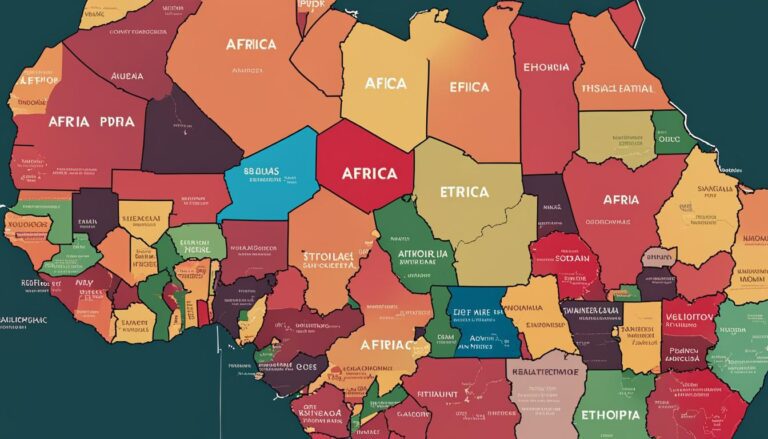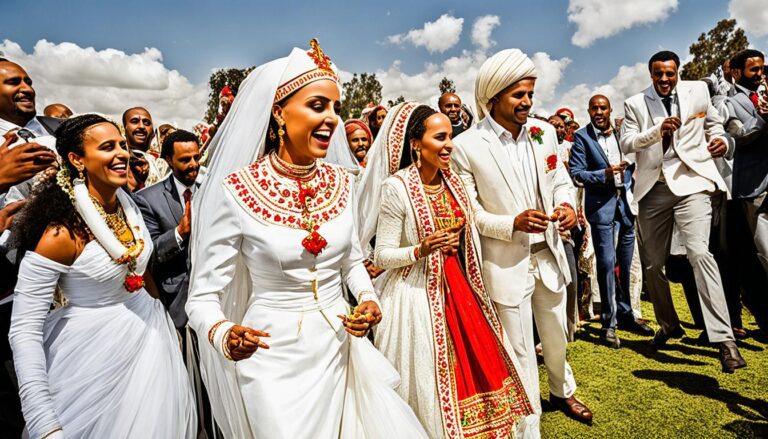Interesting Fun Facts About Ethiopia
Exploring the Fascinating Fun Facts About Ethiopia
When delving into the intriguing tapestry of Ethiopia, one encounters a country rich in history, culture, and natural wonders. Let’s embark on a journey to uncover some of the most captivating fun facts about this East African nation.
Diverse Culture: Ethiopia stands out as the only African country that was never colonized, boasting a unique cultural heritage that dates back over 3,000 years. With more than 80 different ethnic groups and languages spoken, Ethiopia is a melting pot of traditions and customs.
Lucy, the World’s Oldest Fossil: In Ethiopia’s Awash Valley, the skeletal remains of Lucy, an early human ancestor dating back more than 3 million years, were discovered. This significant archaeological find revolutionized our understanding of human evolution.
Land of Origin for Coffee: Legend has it that Ethiopia is the birthplace of coffee. The stimulating brew we all know and love today is said to have originated in the Kaffa region of Ethiopia. Ethiopians have a unique coffee ceremony that is a symbol of hospitality and community.
13 Months of Sunshine: Ethiopia follows a unique calendar system with 13 months in a year. The Ethiopian calendar is seven years behind the Gregorian calendar, with the current year being 2014 in Ethiopia.
Home to Rare Wildlife: Ethiopia is home to diverse wildlife, including the gelada baboon, the Walia ibex, and the Ethiopian wolf. The Simien Mountains National Park is a UNESCO World Heritage Site known for its breathtaking landscapes and rare species.
Stunning Landscapes: From the otherworldly Danakil Depression, one of the hottest and lowest places on Earth, to the lush highlands of the Bale Mountains, Ethiopia offers a diverse range of landscapes waiting to be explored.
Rock-Hewn Churches of Lalibela: The mystical town of Lalibela is famous for its monolithic rock-hewn churches, carved out of solid rock centuries ago. These architectural wonders continue to attract visitors and pilgrims from around the world.
Incredible Linguistic Diversity: Amharic is the official language of Ethiopia, but there are over 80 different languages spoken throughout the country. This linguistic diversity reflects the rich tapestry of cultures and traditions present in Ethiopia.
These fascinating fun facts about Ethiopia only scratch the surface of the wonders that this remarkable country has to offer. Whether you are drawn to its ancient history, vibrant culture, or stunning landscapes, Ethiopia never fails to captivate and inspire those who explore its treasures.
Ethiopian Cuisine and Coffee Culture: A Delectable Journey Through Flavors and Tradition
When it comes to Ethiopian cuisine, one cannot help but be captivated by the rich tapestry of flavors and aromas that define this unique culinary tradition. From hearty stews to spongy injera bread, Ethiopian food offers a delightful experience for the taste buds. One of the most iconic dishes is "doro wat," a spicy chicken stew that is often served during festive occasions such as holidays and celebrations.
Moreover, Ethiopian coffee culture is deeply ingrained in the social fabric of the country. Coffee ceremonies, known as "jebena buna," are a significant part of Ethiopian hospitality. During these ceremonies, freshly roasted coffee beans are ground by hand and brewed in a traditional clay pot called a "jebena." The coffee is then served in small cups, accompanied by burning incense and popcorn.
In addition to its culinary prowess, Ethiopia is also known for its unique coffee beans. The country is the birthplace of Arabica coffee, and Ethiopian coffee is celebrated for its complex flavors and distinct profiles. Whether you prefer a fruity Yirgacheffe or a bold Sidamo, Ethiopian coffee offers a sensory journey that is unparalleled.
Furthermore, Ethiopia’s coffee culture extends beyond its borders, with the country being one of the top coffee exporters globally. Ethiopian coffee beans are sought after by connoisseurs worldwide for their quality and diversity. The lively coffee markets in cities like Addis Ababa are a testament to the importance of coffee in Ethiopian culture and economy.
In essence, Ethiopian cuisine and coffee culture are intertwined with the country’s heritage and traditions. Exploring the flavors of Ethiopia through its traditional dishes and coffee rituals is not just a culinary experience but a cultural journey that immerses you in the essence of this vibrant nation. So, next time you savor a cup of Ethiopian coffee or dig into a plate of injera, remember that you are partaking in centuries-old traditions that have stood the test of time.
Rich Cultural Heritage of Ethiopia
Ethiopia boasts a rich cultural heritage that spans thousands of years, making it one of the most diverse and fascinating countries in Africa. From its ancient roots to its vibrant present-day traditions, Ethiopia’s culture is a tapestry of customs, beliefs, languages, and architecture that have been passed down through generations.
One of the most iconic elements of Ethiopian culture is its unique alphabet. The Amharic script, known as Ge’ez, is one of the oldest alphabets still in use in the world today. It consists of over 200 characters and is used primarily for writing the country’s official language, Amharic. This ancient script is a source of pride for many Ethiopians and is often seen in religious texts, historical documents, and even in modern signage throughout the country.
Ethiopia is also home to some of the oldest Christian churches in the world. The rock-hewn churches of Lalibela, a UNESCO World Heritage site, are a prime example of Ethiopia’s ancient architectural wonders. These churches, carved entirely out of solid rock over 800 years ago, stand as a testament to the country’s deep Christian roots and the ingenuity of its medieval craftsmen.
In addition to its Christian heritage, Ethiopia also has a rich tradition of Islam that dates back to the early days of the religion. Harar, a walled city in eastern Ethiopia, is considered the fourth holiest city in Islam and is known for its numerous mosques and shrines. The city’s unique blend of Ethiopian and Islamic culture has earned it recognition as a UNESCO World Heritage site and a center of learning and religious tolerance in the region.
Ethiopia’s cultural heritage is not just limited to its ancient past; the country is also known for its vibrant music and dance traditions. From the hypnotic rhythms of traditional instruments like the krar (a lyre) and the masenqo (a single-stringed fiddle) to the energetic movements of traditional dances like the eskista, Ethiopian music and dance are integral parts of everyday life in the country.
Ethiopia’s rich cultural heritage is a testament to the country’s long and storied history. From its ancient alphabets and rock-hewn churches to its vibrant music and dance traditions, Ethiopia’s culture continues to captivate and inspire people from around the world.
Natural Wonders and Landscapes in Ethiopia
Ethiopia, known for its rich history and vibrant culture, is also home to breathtaking natural wonders and diverse landscapes that attract visitors from around the world. From majestic mountains to stunning waterfalls, Ethiopia offers a unique blend of beauty and serenity.
One of the most famous natural wonders in Ethiopia is the Simien Mountains National Park, a UNESCO World Heritage Site renowned for its stunning scenery and diverse wildlife. The park is home to rare species such as the Ethiopian wolf and the walia ibex, offering visitors a glimpse into Ethiopia’s unique ecosystem.
Another must-visit destination in Ethiopia is the Danakil Depression, one of the hottest and lowest places on earth. This otherworldly landscape features colorful sulfur springs, salt flats, and bubbling lava lakes, providing a truly mesmerizing experience for adventurous travelers.
Ethiopia is also home to the beautiful Blue Nile Falls, known locally as Tis Issat, meaning "smoking water." The falls are a majestic sight to behold, especially during the rainy season when the water volume is at its peak. Visitors can take in the breathtaking views and feel the mist from the powerful cascades, creating a memorable experience.
In addition to these iconic landmarks, Ethiopia boasts a diverse range of landscapes, including the lush Omo Valley with its vibrant tribal cultures, the rugged Bale Mountains with unique wildlife species, and the serene Lake Tana, the largest lake in Ethiopia and the source of the Blue Nile River.
Whether you’re an outdoor enthusiast, a nature lover, or a photography enthusiast, Ethiopia’s natural wonders and landscapes offer a wealth of opportunities to explore and experience the beauty of this fascinating country. Plan your visit to Ethiopia and immerse yourself in the awe-inspiring sights and sounds of its natural treasures.
Unique Festivals and Celebrations in Ethiopia
Ethiopia, a culturally rich country in East Africa, boasts a vibrant tapestry of festivals and celebrations that showcase its diverse traditions and history. Here are some intriguing insights into the unique festivals and celebrations of Ethiopia:
Timkat, the Epiphany celebration, is a significant religious festival in Ethiopia. It commemorates the baptism of Jesus in the Jordan River and typically falls on January 19th or 20th. During Timkat, colorful processions, music, and dancing fill the streets as worshippers gather around water bodies for symbolic reenactments of the baptismal ceremony.
Meskel, or the Finding of the True Cross, is celebrated in September to mark the discovery of the cross on which Jesus was crucified. The festival features the lighting of a large bonfire known as the "Demera" in towns and villages across the country. It is a visually stunning event accompanied by traditional hymns and prayers.
The Irreecha festival is an important cultural event celebrated by the Oromo people to give thanks for the end of the rainy season and welcome the harvest season. Thousands gather at the sacred lake of Hora Arsadi in Bishoftu to offer blessings, sing songs, and perform traditional dances as a symbol of thanksgiving and renewal.
The colorful festival of Enkutatash, or Ethiopian New Year, falls on September 11th (September 12th in leap years) and marks the end of the rainy season. It is a time of joy and feasting where people exchange bouquets of flowers and young girls donning new clothes perform traditional dances in the streets.
The Maskal festival, known as the Feast of the True Cross, is celebrated to commemorate the unearthing of the cross on which Jesus was crucified. This religious festival involves the chanting of hymns, the burning of incense, and the gathering of priests and followers in a jubilant celebration of faith.
Ethiopia’s festivals and celebrations provide a captivating glimpse into the country’s cultural heritage and religious practices. Each event is a testament to the deep-rooted traditions and vibrant spirit of the Ethiopian people, making it a fascinating destination for those seeking to explore diverse and colorful festivities.
Conclusion
Ethiopia is a fascinating country with a rich tapestry of culture, history, and natural beauty waiting to be explored. From its unique cuisine and world-renowned coffee culture to its diverse landscapes and ancient traditions, Ethiopia offers a truly immersive experience for travelers. The country’s vibrant festivals and celebrations add an extra layer of excitement and color to an already extraordinary destination. Whether you are trekking through the Simien Mountains, sampling injera at a traditional Ethiopian restaurant, or witnessing the mesmerizing Meskel festival, Ethiopia never fails to captivate and inspire with its endless wonders. So, pack your bags, immerse yourself in the warmth of Ethiopian hospitality, and get ready for an unforgettable journey through this enchanting land of ancient wonders and modern delights. Ethiopia truly is a gem of Africa, waiting to be explored and cherished by all who seek adventure, beauty, and a deeper understanding of this extraordinary country and its people.



